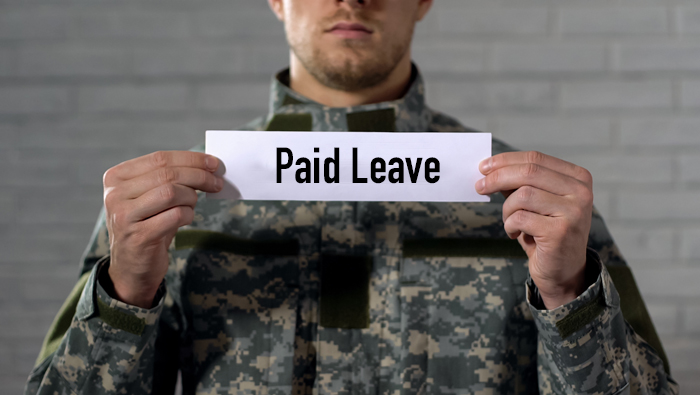This month, the U.S. Court of Appeals for the Ninth Circuit (Ninth Circuit) found that, under the Uniformed Services Employment and Reemployment Rights Act (USERRA), employers that provide non-military paid short-term leave for specific reasons must also offer paid military leave of comparable duration. The Ninth Circuit’s decision reversed an earlier district court’s too-broad comparability analysis. Its analysis considered all leave and the frequency of requests. The Ninth Circuit is the largest appellate court in the U.S. It covers Alaska, Arizona, California, Guam, Hawaii, Idaho, Montana, Nevada, the Northern Mariana Islands, Oregon, and Washington. In November 2022, the U.S. Equal Employment Opportunity Commission (EEOC) issued a document on preventing military service employment discrimination.
Rights Under USERRA Include Paid Military Leave
Passed in 1994, USERRA is a federal law that protects covered military service members and veterans from employment discrimination because of their service. For example, USERRA allows service members to regain their civilian jobs following a period of uniformed service. It also protects service members from hiring discrimination or adverse employment actions based on their military service. Employers must display a notice of USERRA rights in the workplace, among other labor law posters. On paid military leave, USERRA states the following:
- Employers must grant paid military leave to employees absent due to uniformed service if the same benefits are provided to non-military employees.
- Employees are entitled to the same benefits and seniority (e.g., salary and paid leave) during their leave as though they had remained continuously employed during that period.
A few exceptions may affect a service member’s entitlement to reemployment. These include unfavorable discharge, service lasting more than five years, an injury that would cause an employer undue hardship, or a change in the employer’s circumstances (e.g., bankruptcy) that would make reemployment impossible or unreasonable.
Background of the Case
In January 2019, an airline pilot employed by Alaska Airlines alleged that their employer owed him pay for the time off they took for short-term military service. The pilot argued that other pilots had received pay for non-military leave they took for similarly short durations. Reasons for the non-military leave included jury duty, bereavement, and sick leave. The pilot filed suit in the U.S. District Court for the Eastern District of Washington (district court). The district court, however, ruled for Alaska Airlines. It held that the pilot’s military leave was not comparable to other employees’ paid short-term leave and that it was taken more frequently.
Ninth Circuit Rules on Paid Military Leave
In Clarkson v. Alaska Airlines, Inc, the Ninth Circuit found the district court’s initial analysis flawed. Briefly, the district court failed to make a fair and accurate judgment of comparability between the requested military leave in this specific instance and the similar non-military paid leave taken by other Alaska Airlines employees. According to the Ninth Circuit, the district court made the following errors:
- Compared short-term non-military leave to all military leaves (which may vary in length), rather than the short-term military leave that was requested.
- Errantly considered the frequency of the airline pilot’s requested leave.
The Ninth Circuit cited “duration of leave” as the most significant comparability factor the district court should have considered. Subsequently, the Ninth Circuit reversed the earlier district court’s decision. Thus, Alaska Airlines would need to grant paid military leave to the airline pilot, as it grants other employees paid leave for non-military reasons for a comparable short term. In the end, the comparability of military leave to non-military leave is determined on a case-by-case basis.

